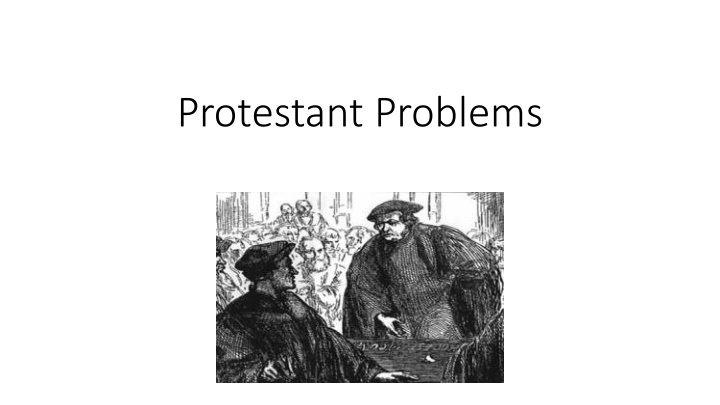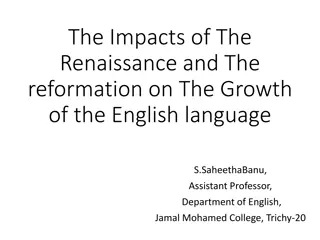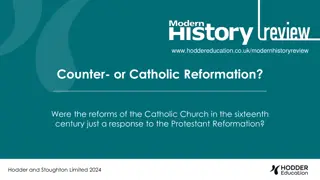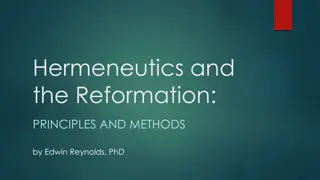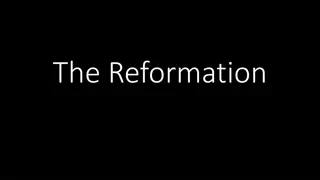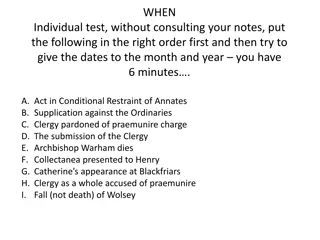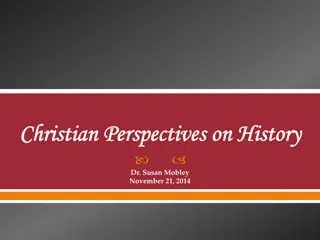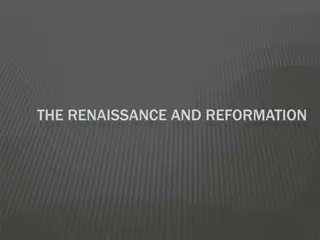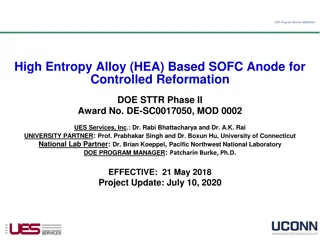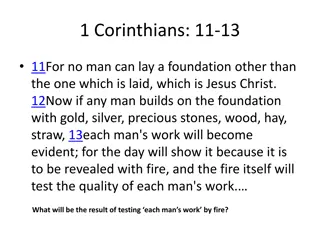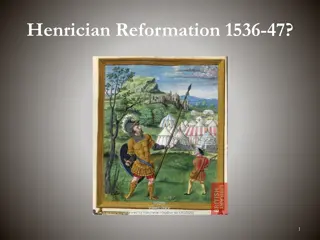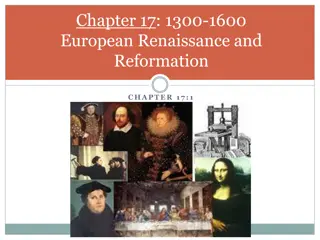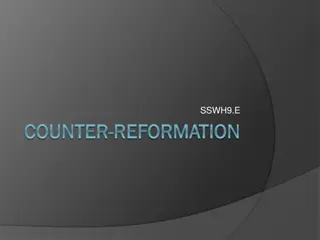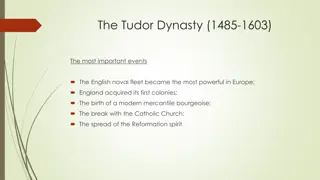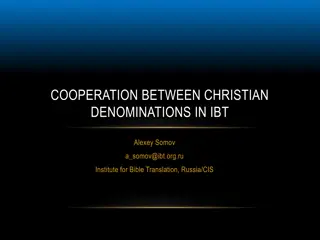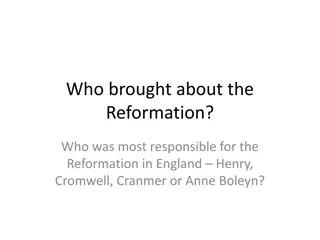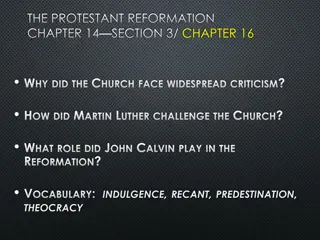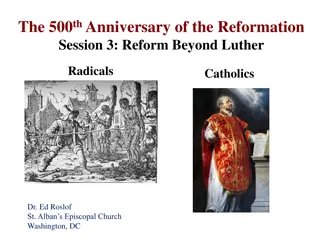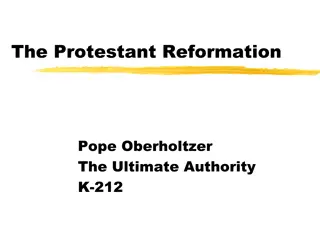Diverse Perspectives on the Protestant Reformation
Exploring key events and figures of the Protestant Reformation, from the theological debates between Luther and Zwingli to Calvin's influence in Geneva. The narrative delves into the international impact of Calvinism, the Council of Trent's response, and the Elizabethan Reformation's significance. It also examines the tensions within English Catholicism and the reform efforts of William Tyndale and John Hooper.
Download Presentation

Please find below an Image/Link to download the presentation.
The content on the website is provided AS IS for your information and personal use only. It may not be sold, licensed, or shared on other websites without obtaining consent from the author.If you encounter any issues during the download, it is possible that the publisher has removed the file from their server.
You are allowed to download the files provided on this website for personal or commercial use, subject to the condition that they are used lawfully. All files are the property of their respective owners.
The content on the website is provided AS IS for your information and personal use only. It may not be sold, licensed, or shared on other websites without obtaining consent from the author.
E N D
Presentation Transcript
Recap: Reformation Divided Luther (Saxony-German) vs. Zwingli (Swiss): Marburg Colloquy (1529) Hoc Est Corpus Meum?: Eucharistic Division Renaissance Humanism: Friends and Critics of the Reformation From Little Germany to the Swiss Connection: English move towards Reformed
Perfect School of Christ: Calvin & Geneva John Calvin (Jean Cauvin) (1509-1564): French Humanist, exile, theologian, architect of the Reformation The Institutes of the Christian Religion: Reformation as Systematic Theology? Presbyterianism: Plurality of Elders, radical change in polity The Shadow of Election: Salvation and Double Predestination
The Reformed International Reformed as Calvinism : A slur or is there some truth? Covenantal Theology: The pact between God and Man International Reformed: French (Huguenots), German, Dutch, Scottish (John Knox) The Marian Exiles: Geneva as ally or master? Rules for Radicals?: Geneva Bible (1560), Lesser Magistrate Doctrine, and the Question of Adiaphora
Counter (Catholic) Reformation Council of Trent: Moral reforms, but doctrinal doubling-down Society of Jesus: Jesuits as missionaries, political radicals, and shock-troops English Catholics: Caught between loyalty and rebellion
Elizabethan Reformation: Via Media? Marian Exiles: Debate over Prayer book and Further reform Conformists: Protestants committed to orderly and royal reformation Predestination as Public Policy: Social destabilization and doctrine Adiaphora: Governor s (Monarch s) prerogative Elizabethan Catholics: allies to Protestant kingdom
Reformation Without Tarry: Earlier reform William Tyndale: Reformation with or without the monarch John Hooper (1495-1555): Edwardian bishop and vestments controversy Conceptual Question: Which truths matter? Who is to decide? Should social order take precedence over reform or the opposite?
Hotter Sort of Protestants: Puritanism Puritanism: A slur, a movement, and an ethos; the need to push the Reformation further; preserving, but cleansing, the national church Edmund Grindal: moderate puritan, prophesyings scandal, sacked (1583) Marprelate Tracts: radical puritanism, Presbyterianism, a threat? Mask of Villainy: Puritan as Machiavellian Rebel?
Conformity, Radical Conformity and Popery John Whitgift: Conformism as necessary for Reformation in mean-time; debate with Thomas Cartwright Richard Hooker: The Elizabethan Settlement as Ideal Mask of Villainy Redux: Popery as enemy of further reform
Puritans and Papists: Considerations Both trope and reality: analytical task is to see amid truth and fiction Accusations created reality: claiming the existence of radicals to the left and to the right promoted ideas that were, ironically, not in circulation Recriminations deepened Machiavellian politics: every crisis could provoke counter-crisis
